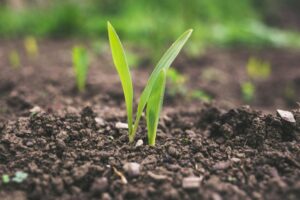FAO study warns plastic pollution in soils threatens food security

Photo by Roman Synkevych on Unsplash
Geneva, 5 August 2025 – Plastic pollution is contaminating agricultural soils at levels that can damage crops and undermine food security, according to a study from the Food and Agriculture Organization of the United Nations (FAO), which systematically reviewed international scientific literature published on this topic over the last decade.
Released ahead of the final session of the Intergovernmental Negotiating Committee (INC-5.2) on a Global Plastics Treaty, held from 5 to 14 August in Geneva, the report draws on more than 2,000 scientific papers. It shows that although data on the occurrence and effects of plastic pollution in soil remain fragmentary, there is robust and consistent evidence of widespread contamination at levels that pose risks to soil and plant health.
The findings are stark: in some areas plastics make up as much as 0.3 percent of soil by weight. Even trace levels of 0.001 percent have been linked to harmful effects. The study also raises concern about biodegradable plastics, revealing they are not inherently less harmful than conventional plastics and can leave an equally damaging footprint. Their actual degradability in soil requires further investigation across the diverse environmental conditions in which these materials are used.
FAO warns that plastic pollution in soils is often irreversible. Microplastics and nanoplastics persist even when larger plastic items degrade, and existing removal methods are either unfeasible or prohibitively costly. Without urgent action, continued plastic release on agricultural land will lead to long-term soil degradation, reduced food production, and increased risks to human health.
“Urgent and coordinated global action is needed to prevent any further plastic pollution of agricultural soils,” said Giulia Carcasci, Agricultural Plastics and Sustainability Specialist at FAO and one of the study authors. The study identifies major research gaps, particularly the lack of standardized monitoring and long-term food safety data. It calls for global inventories, harmonized methodologies, safer product design, and robust waste management systems to tackle the crisis.
FAO has recently prepared a provisional Voluntary Code of Conduct on the sustainable use and management of plastics in agriculture to guide countries in their efforts to protect agroecosystems from this threat. Lev Neretin, FAO’s Environment Lead and head of its delegation to the UN Intergovernmental Negotiating Committee for the Plastics Treaty, stressed the urgency of action: “The science is clear, the risks are preventable, and the tools are within reach. With an ambitious treaty that recognizes agriculture as a high-impact sector, we can support countries to ensure sustainable plastic management across agrifood systems.”
Luca Nizzetto, Chief Scientist at the Norwegian Institute for Water Research (NIVA) and lead author of the report, emphasized the need for an integrated approach to reduce plastic inputs to soils: “While the use of plastics in agricultural production—such as films, mulches, micro-irrigation systems and protective nets—is promoted internationally as a means to increase farm efficiency and buffer crop production against climate extremes, we must consider the long-term trade-offs, especially those associated with widespread mismanagement of agricultural plastic waste and the resulting soil contamination.”
Urgent action to address this problem should involve all stakeholders along the agricultural plastics value chain, rethinking material design (both conventional and biodegradable), farming practices, waste management, and incentive or penalty mechanisms that allocate responsibilities fairly and equitably. Policy, in turn, should recognize that efficiency gains must be balanced with the promotion of diverse farming practices and the preservation of traditional approaches as central strategies for resilience. “Plastic is a non-renewable commodity. Its price fluctuates heavily with the cost of energy and oil. With food systems heavily dependent on it, food security is inherently vulnerable,” Nizzetto added, echoing insights from a recent research paper published on Cambridge Prisms – Plastics.
With agricultural soils underpinning global food security, FAO warns that the window for preventing irreversible damage is closing rapidly. An urgent and coordinated international response is needed to safeguard soils, food, and health for future generations.